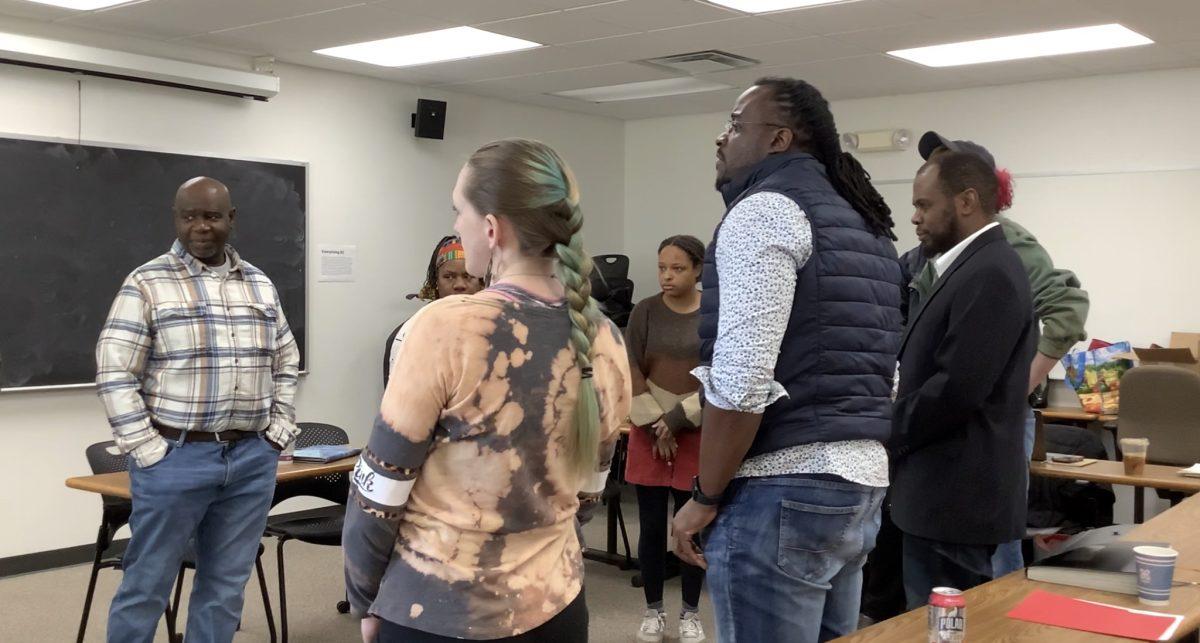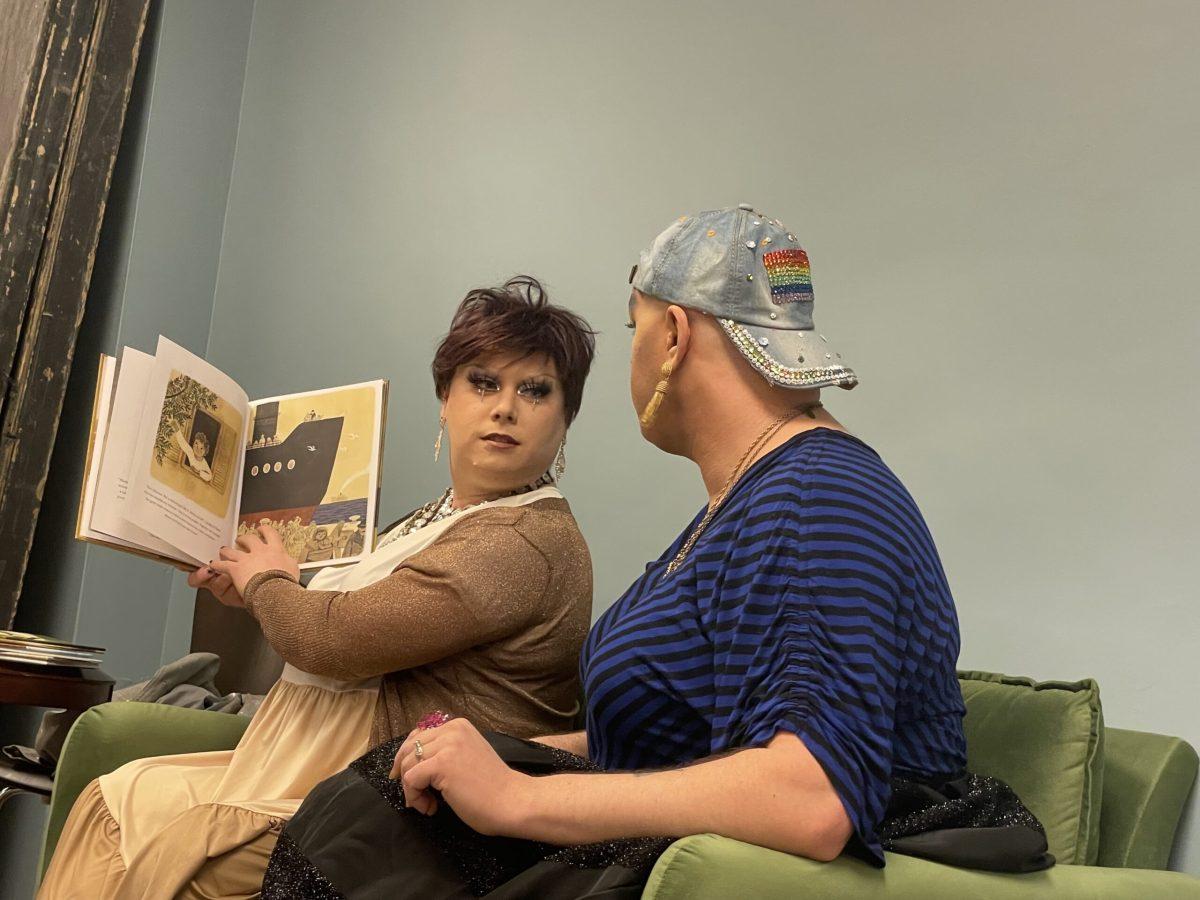
Key Points:
-
Spoken word poet performs at Ithaca College
-
Speaks about his experience in the prison system
-
Articulates the importance of poetry as an art form
The crowd sat scattered throughout the room. But within 30 seconds of taking the stage, Amin Drew Law moved the audience up to the front of the room and had them snapping along to his booming delivery of spoken word poetry.
Law performed at Ithaca College on Oct. 26 in front of more than 30 people. The event was put together by IC Books Thru Bars, a student-run organization that sends books to prisons based on incarcerated individuals’ requests, and seeks to raise awareness about the problems with mass incarceration.
In his set of around 10 poems, Law — who rose to prominence after his poem “Unsaid” was shared on the spoken word site Button Poetry — often discussed how being incarcerated twice for non-violent drug charges impacted his life.
For example, when he performed “Unsaid,” Law spoke about a fundamental right those who are incarcerated often lose.
“You know in the state of Virginia, when you’re a felon, you gotta petition to get your right to vote back,” Law belted. “I’ve learned more about this country here [in prison] than I did at Watkins Mill High School, but now that I’m a felon I can’t vote? That’s ironic.”
In an interview after the event, Law said the ultimate goal of his spoken word is to upend unjust systems, including mass incarceration.
“What I’m really working on now are ways in which I can attack all the oppressive institutions,” he said.
In challenging the institution of mass incarceration, Law said poetry as well as literature are particularly important to expose incarcerated people to because they provide those individuals with a different perspective.
“When you can read good literature and you can read non-propaganda, those things can allow people within the institution of mass incarceration to advocate for themselves and advocate for the people around them,” Law said.

Abby Haley, president of IC Books Thru Bars and a sophomore at Ithaca College, said she invited Law to campus because of how he advocates, through his poetry, for the end of the modern-day prison structure.
Haley said she hoped those in attendance left the performance feeling inspired to help dismantle the system of mass incarceration.
“What I want people to take away from this event is a sense of empowerment,” she said. “Because it can be very disappointing and disheartening to constantly work with such a heavy issue. And I just really want people to feel like they have the power to make change.”

Emma Sheinbaum, the event coordinator of Law’s performance and a senior at Ithaca College, said the kind of poetry Law does is important because it serves as a way to humanize incarcerated individuals, who are often shunned by society.
“I know in the mainstream media and in school, we don’t really talk about these issues because we ‘other’ incarcerated people with things like calling them prisoners instead of incarcerated people,” Sheinbaum said.
Overall, Law said the reason he uses art — which is what he calls spoken word poetry — as a means of communication for his activism is because of how art can create an emotional response.
“It just allows people to understand that people are going through similar things,” he said. “It allows people to gain empathy. And when you’re good at doing art, you can move people through your performance or through your writing.”





